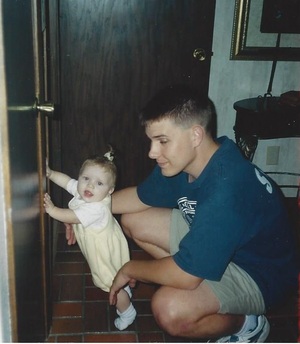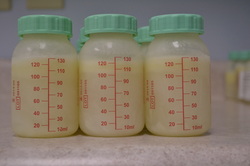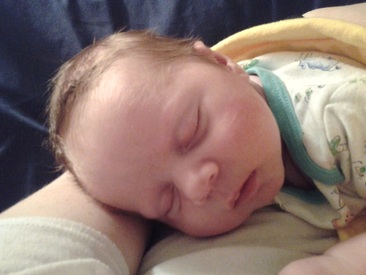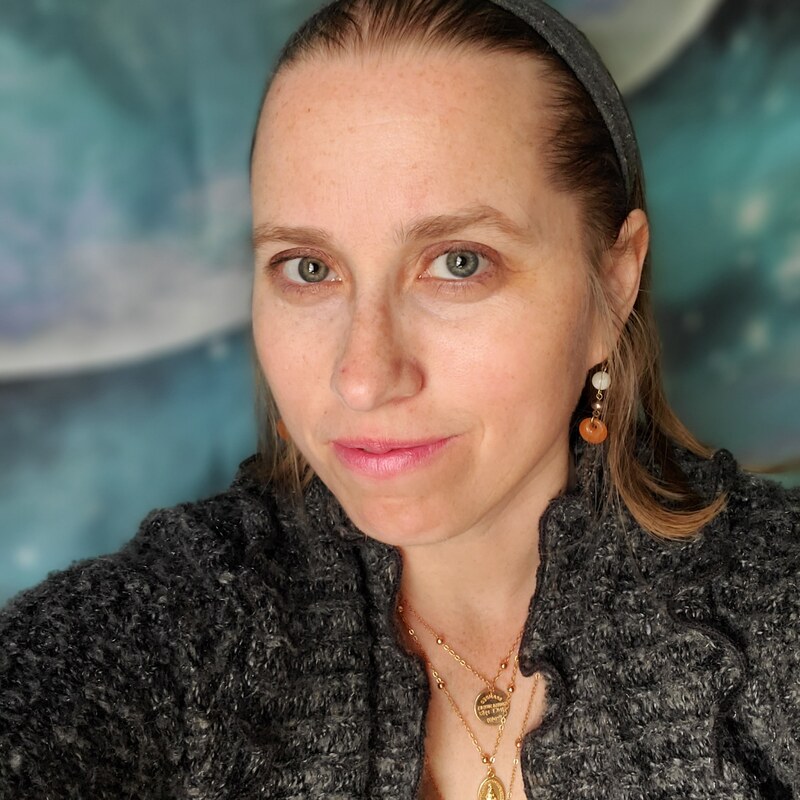 Chris & E-R shortly after his AK trip Chris & E-R shortly after his AK trip When our eldest daughter was nine months old, Daddy went to Alaska for his annual commercial salmon fishing adventure...er...business trip. The trip was to last for four weeks. The change in our normally exceedingly placid daughter was astounding. For three days, she cried inconsolably. We far underestimated how important her father was to her, even at such a young age. Needless to say, that was the last time Daddy left for such a long time. When Daddy finally returned, I took her to the airport to pick him up. I remember in vivid detail what happened next. He greeted us in his usual exuberant way. Ready to be done with my "adventure" in single parenting, I was thrilled to see him. She just looked at him for a brief moment and lost interest. She had forgotten her own father in four weeks. He sat next to her car seat on the trip home. He started joking and playing with her. Her eyes suddenly sparkled with recognition; one might even say with amazement. Sometime in that trip home from the airport, she realized that her long lost daddy had returned. According to CDC data from 2001-2006, Minnesota ranked as the sixth lowest state in the Union for maternal mortality, with 5 maternal deaths per 100,000 liveborn infants. Wisconsin’s rate was over double Minnesota’s with 10.9 maternal deaths per 100,000 liveborn infants, putting Wisconsin in the lower half of the states at 29th lowest. Compared to a maternal mortality rate of 12.1 for the United States as a whole, both Minnesota and Wisconsin are doing maternal health care rather well. But compared to the Healthy People 2010 goal of no more than 3.3 maternal deaths per 100,000 live births, both states have room for improvement. Recently, a 32 year old Minneapolis woman with a two week old infant suddenly died of unknown causes, though the death may have been related to a blood clot. Her sudden loss leaves a terrible hole behind in her family and community, and her loss is also experienced by her infant.  While, thankfully, most of us will not personally experience maternal mortality among our family or friends, it is important to be prepared should it occur. Those surrounding this Minneapolis family have rallied to their aid, offering practical help including breast milk donations. Offering mother’s milk cannot begin to fill the hole left by the death of the baby’s mother, but it does provide practical "next best" nourishment for the child, and no doubt eases the emotional strain on the surviving family. For those interested in learning more about donating breastmilk (though not directly to this family)—or those who need to be on the receiving end—the Health Foundations Family Health & Birth Center takes and offers donations, as does the University of Minnesota Medical Center, Fairview. Several other groups that have local chapters for milk sharing are Eats on Feets and Human Milk for Human Babies. Donors are most often breastfeeding moms who pump or express milk above their own baby’s needs, milk that can be shared with another baby. A less commonly known source of breastmilk is the mother who has lost a baby. It is possible to pump or express and collect milk for a time to donate to another baby in need, a gift known as “Legacy Milk.” For more information, please contact me.  While her milk is invaluable to her baby, a mother is more than just a source of food and comfort. Even very young babies grieve the loss of those closest to them. All babies, especially very young ones, need lots of holding and attachment. For babies who have lost a mother or father, this need is even greater. It is ideal if another person can take up where the mother was forced to leave off due to her unexpected passing away—helping the baby to bond with one other person is key to the baby’s normal emotional development. The infant will need lots of holding and skin-to-skin contact. Swaddling and infant massage will also help baby to feel more secure during this difficult time. Talking with the infant about what happened is important; even if he or she does not understand the meaning of the words, the tone of understanding that baby misses his or her mother and your desire to be a source of comfort will come through loud and clear. It is said that the hardest thing a parent can endure is the loss of a child. It is not as commonly said that the hardest thing a child can endure is the loss of a mother (or father). Simply because a person cannot express his or her sorrow in words does not mean it does not exist. Baby may express his grief in long bouts of crying, or in sleeping more—or less—than usual, or changes in feeding patterns. While it is crucial that the very young baby form a close attachment to one person, it may feel overwhelming for a widower to cope with these changes in the baby’s behavior in addition to dealing with his own grief. Friends and extended family can be a real blessing if they pick up the slack and spell the surviving parent or other caregiver with the tasks of feeding, holding the baby, changing diapers, giving the survivor an opportunity to shower or eat a meal, providing meals, housecleaning, or helping with the care of older children. Simply knowing that you are praying for them will give them courage and hope. Surrounding the infant and his or her family with love and support is an invaluable gift that will help the family—and the baby—to recover in time. The family will never be the same as it was before, but it will develop a new normal and can grow strong again. For More Information: Alan D. Wolfelt, Ph.D., Helping Infants and Toddlers When Someone They Love Dies
1 Comment
|
Details
Archives
November 2023
Categories
All
Enter Your Email Address to get St. Croix Birth Blog Posts in Your Inbox(We don't collect your email address and you won't get anything else from us.)
|

 RSS Feed
RSS Feed